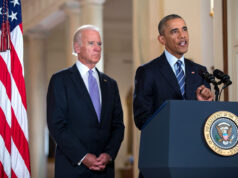On May 16, 2010, the Jewish Policy Center brought together author and New York Post columnist John Podhoretz, Middle East Forum founder Daniel Pipes, and former George W. Bush speechwriter David Frum for a roundtable discussion moderated by radio talk show host Michael Medved. Located at the Aaron Family JCC in Dallas, Texas, the event was titled “President Obama’s Approach to the Middle East.” Click HERE to view the video in its entirety.
The panelists, all renowned experts in Middle Eastern affairs, tackled questions presented by Mr. Medved and the audience. The discussion began with a conversation on President Obama’s worldview, and how it affects his administration’s policy towards Israel. According to Pipes, President Obama views Israel as a nuisance, as is the norm in contemporary American Leftist thought, which believes “coolness towards Israel is in the American interest.” In that line of thinking, according to Pipes, Obama considers Israel as the reason why Washington does not have better relations with the Islamic bloc. According to Podhoretz, President Obama’s friendship with anti-Zionist activists and Palestinian Liberation Organization members could only be explained by “a deep and very serious animus towards the State of Israel.” Frum noted that the Jewish community views the State of Israel as “the center of its aspirations and hopes,” however, President Obama “show[s] no understanding at all for how Israelis and Jews feel about [Israel as a Jewish homeland].”
To solidify the message, Podhoretz reminded the audience how President Obama treated Prime Minister Netanyahu during Netanyahu’s March 2010 trip to the White House after a heated debate on new housing projects in the Israeli capital. “[Obama] walked in, presented [Netanyahu] with a list of 16 demands…and said that he…[would] come back if the prime minister came to his senses.” All panelists agreed that Obama’s level of obsession with Israeli settlements was abnormal, unnecessary, and unprecedented. All also hinted that Obama’s policies may lead to a crisis in U.S.-Israel relations.
On the Israeli-Palestinian conflict and the two-state solution, Podhoretz mentioned that the two-state solution was first proposed in 1947, and while it took Israel only one year to realize a Democratic nation-state the Arabs have yet to achieve their aspirations of democratic statehood. Said Pipes, “I am not against a two-state solution in theory. The Palestinians have had 17 years of trial. They’ve completely failed. I think they’ve lost their chance [at an independent state].” The panelists all agreed that the Palestinians consistently miss chances to upgrade their political standing in the world, and that the world owes them nothing until they take certain steps towards building a state. These steps would include eliminating terror and respecting the rights of Jews and Christians living in Palestinian areas. A proposed Palestinian state must also “disarm itself, be a democratic state, and take measurable and coherent and obvious steps to convince Israel of its bona fides in the notion that it wishes to live side by side in peace,” Podhoretz added.
The topic of Iran and its nuclear program was broached. According to Frum, “President Obama knows that a nuclear Iran is the foreign policy issue that can most obstruct his reelection…Iran is the great break on his aspirations. The American people regard this as an unacceptable threat to Israel.” Podhoretz added, “95% of the populace of Israel believes that Iran poses an existential threat…the development of a nuclear bomb could lead to strikes on Israel that could kill anywhere between 50,000 and one million people.” It was apparent that action must be taken on Iran and its nuclear program, according to the panelists.
*****
Please consider making a generous contribution to the JPC to help ensure that we continue to bring similar events to communities across the country. You may contribute online securely by clicking HERE.





